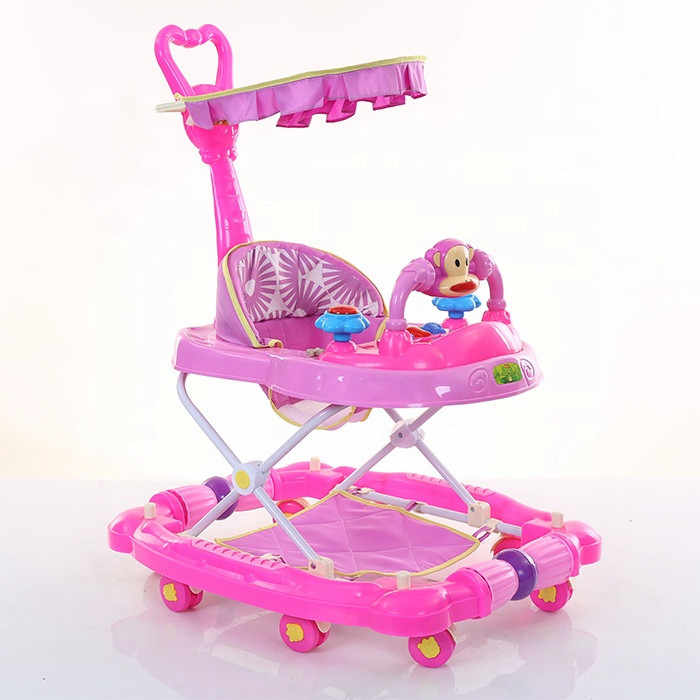Best Age for Baby Walkers and Developmental Benefits for Little Ones
Understanding the Best Age for Baby Walkers How Many Months?
When it comes to encouraging our little ones to explore the world around them, baby walkers often come to mind as a popular tool for helping infants transition to walking. However, many parents wonder at what age is it appropriate to start using a baby walker? Understanding the optimal time frame for introducing a baby walker is essential not only for the child's physical development but also for safety considerations.
Understanding the Best Age for Baby Walkers How Many Months?
It is important to emphasize that walkers should never replace the basic developmental milestone of crawling. Crawling not only builds muscle strength in the arms and legs but also enhances coordination and sensory development. As babies start to crawl around 6 to 10 months, they naturally develop the skills needed to walk. Utilizing a baby walker should complement this natural development rather than hinder it.
baby walker how many months

When looking for a baby walker, safety is key. Parents should choose walkers that meet safety standards, which include features such as a wide base to prevent tipping over, a brake system for when the baby approaches stairs, and adjustable heights that can accommodate a growing child. Furthermore, supervision is essential. Babies shouldn’t be left unattended in walkers, as they can easily move into dangerous areas or reach items that are potentially harmful.
Around the age of 9 to 12 months, many babies are ready to take their first independent steps. At this stage, walkers can still provide supportive aid, but parents should balance their use with the opportunities for the baby to practice standing and walking without assistance. It is also recommended to provide a safe space for the infant to walk unassisted, which allows for confidence-building as they master the skill of walking.
Despite the advantages, some health professionals express concerns regarding the use of baby walkers. Studies suggest that walkers can lead to delays in achieving walking milestones. In some cases, babies in walkers may learn to walk on their toes, creating long-term postural issues. Additionally, there is an increased risk of injury if infants have access to stairs or other hazards while in a walker. Therefore, while walkers can serve as a fun and engaging way for babies to explore their environment, the potential risks should not be underestimated.
In conclusion, the question of how many months is imperative to consider when thinking about baby walkers. The safest and most beneficial age to start using a baby walker is around 6 months old, providing that the child can sit up independently. As they grow, it is essential to limit the use of walkers while encouraging crawling, standing, and walking in secure environments. Parents should remain vigilant and prioritize safety by selecting a quality walker and supervising their child during its use. Ultimately, every child develops differently, and while walkers may provide assistance in the walking process, it is crucial to respect the natural timeline of development, allowing children to progress at their own pace. By prioritizing safety and proper developmental practices, parents can set their little ones on a successful path towards walking and exploring the world around them.
-
Best Infant Strollers 2021: Top Choices for Safety & ComfortNewsAug.11,2025
-
Best Infant Strollers 2021: Top Rated & Luxury OptionsNewsAug.11,2025
-
Luxury Infant Strollers: Modern, Premium & Top-RatedNewsAug.10,2025
-
Kids' Powered Ride-On ATVs Manufacturer | Quality & SafeNewsAug.09,2025
-
Best Infant Strollers 2021: Top Rated, Safe & ComfortableNewsAug.08,2025
-
Baby Strollers Factories: Top Manufacturers & Wholesale SuppliersNewsAug.07,2025
